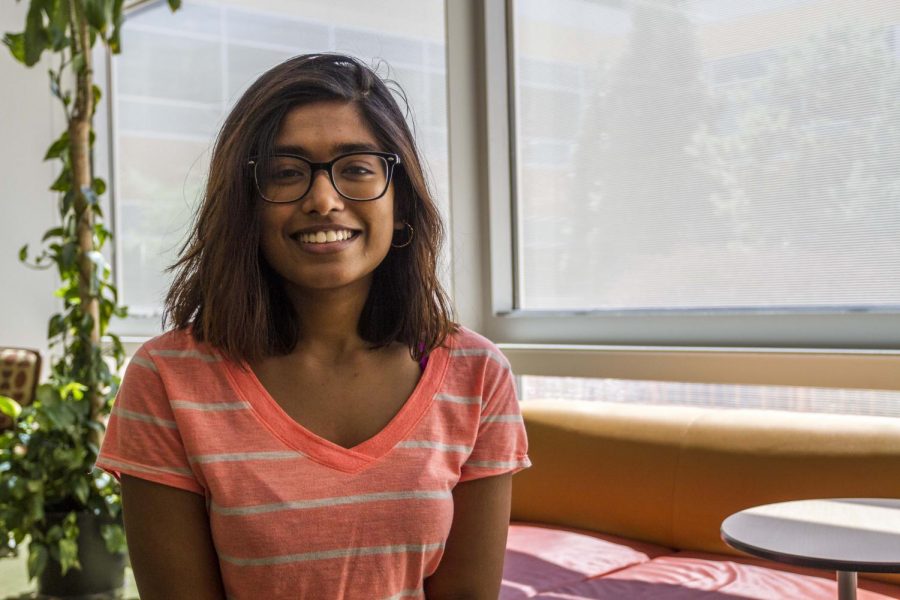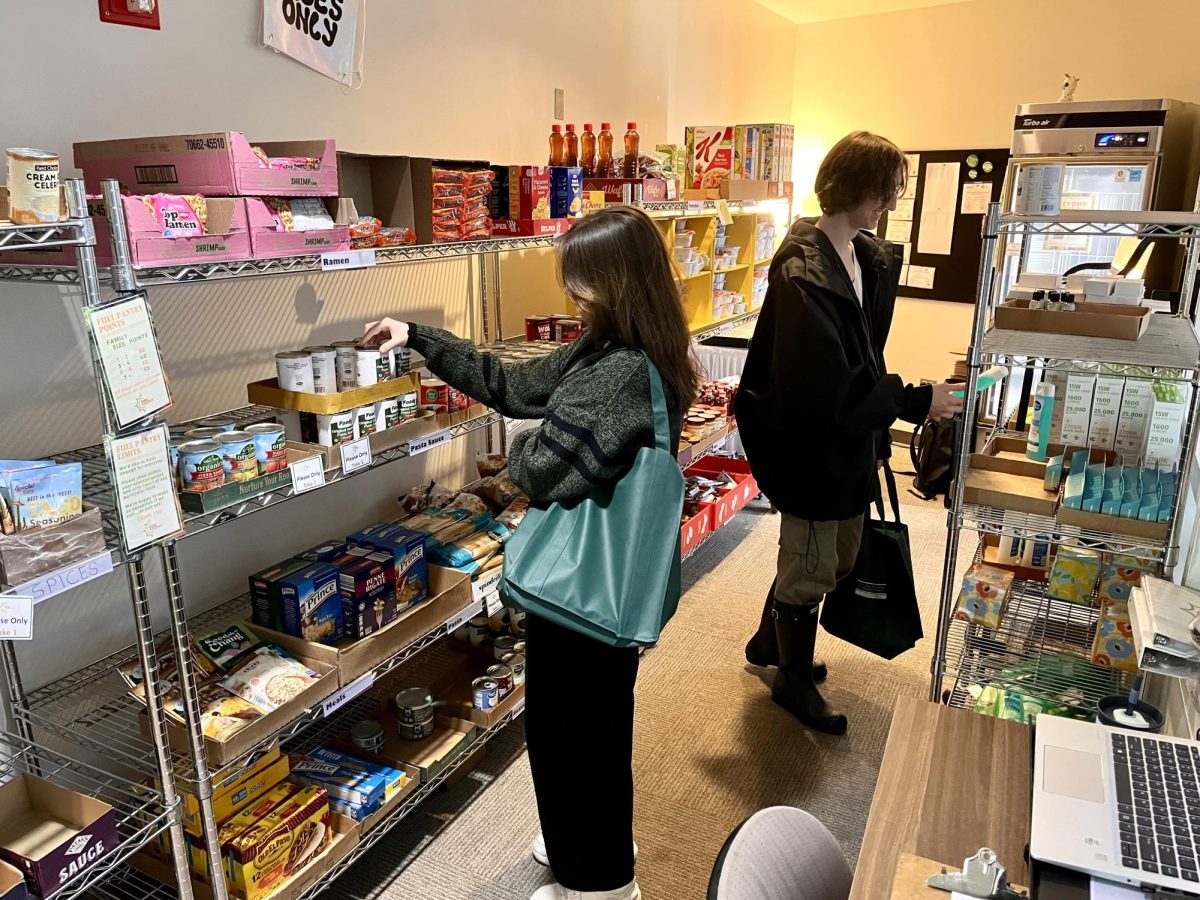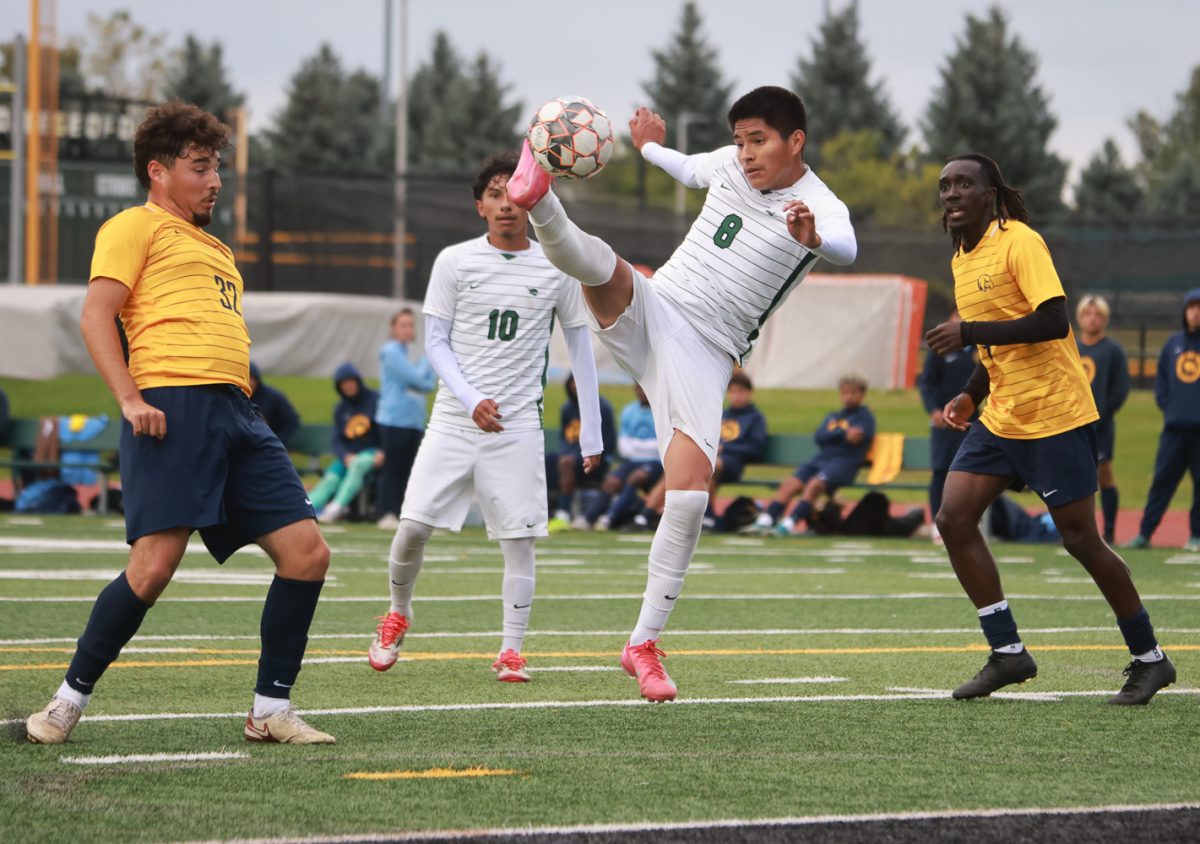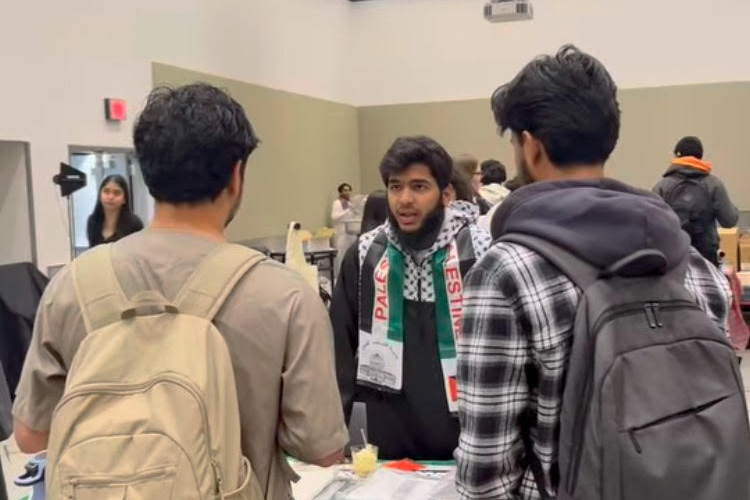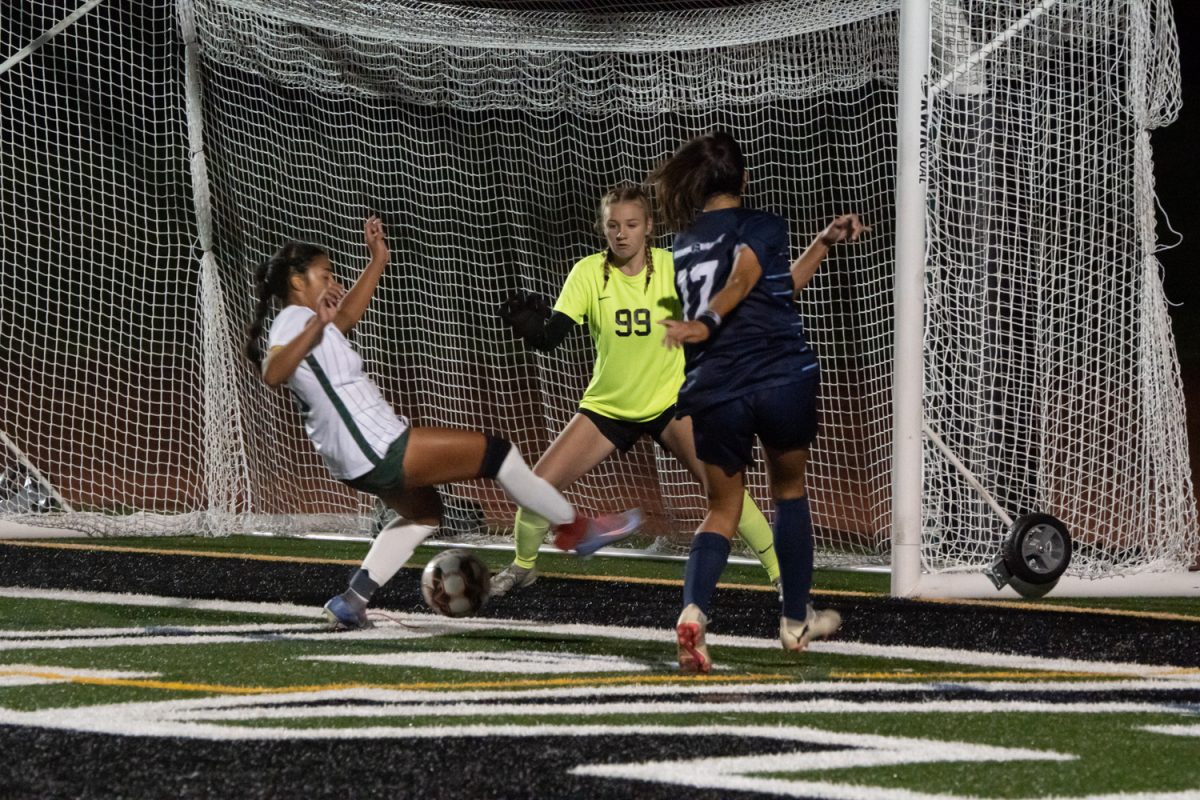Q+A: Engineering student Jessica Halder talks about her time at COD
Engineering student Jessica Halder
May 1, 2018
Jessica Halder is the president of the BioTech Club at College of DuPage. The engineering major is headed to the University of Illinois-Urbana Champaign this fall to continue her studies. She spoke to the Courier about how her club provides an opportunity for students to network with colleges and other students with similar interests:
Vandy Manyeh: What inspired you to study engineering at COD?
Jessica Halder: When I came to COD, I was interested in both science and engineering, but I didn’t know which of the two to build a career around. Talking to many peers and professors made me realize that I did not have to choose between the two. I was introduced to bioengineering, which is a relatively new, and incredibly broad field that encompasses nearly all my interests. I could pick between a wide variety of topics to specialize in that incorporates engineering in the field of science in ways that I hadn’t imagined. When I went to Bangladesh, I became particularly interested in the idea of energy. I am used to taking it for granted at home, but parts of Bangladesh barely has running electricity, and the parts that do have it face frequent power outages. The large disparity I saw made me hyper-aware of the foundation of renewable energy, and, since then, I wanted to specialize in it.
VM: What is BioTech at COD all about?
JH: BioTech stands for Biotechnology. It is a very broad subject that combines biology, chemistry and technology. At this club, we strive to do the same by means of experiments. Our advisor, Karen Persky, teaches both biology and microbiology, and is very well prepared to lead us through various experiments based on what we are curious about.
VM: Why should I join?
JH: You should join because not many people are informed of what biotechnology is or is capable of right now. It is a relatively new, yet rapidly growing field. Nearly all STEM majors can find something in biotech to relate to or some aspect that directly applies to their own career fields. Also, there are many misconceptions today about what Biotechnology can do. Various forms of media have proposed extremely unrealistic and exaggerated theories about how a future with too much biotechnological research can go wrong. As a result, people fail to see all the ways humanity can benefit from it. The medical field has already advanced from incorporating new forms of biotech research and can continue to do so. Too few people are aware of this and joining BioTech is a great way to gain better understanding through hands-on research.
VM: What can be done to help girls who may be interested in your career path?
JH: Science, technology, engineering and math are considered stereotypically male subjects. As a result, when I was growing up, girls seemed to have felt discouraged about pursuing anything in those fields. That is a shame, because careers in STEM are not about gender; they are about ingenuity. Thus, I think STEM-related topics should be introduced and advocated to both male and female children from a young age. A future in a STEM-related career should be presented as equally possible opportunities for everyone, regardless of gender. Science, technology, engineering and math are not subjects catered toward any certain demographic. They are for people curious enough to ask why the sky is blue and people motivated enough to find the answer to that question. Engineering in particular seems to be a very male-dominated career when there is no reason for it to be. At the basic level, engineers solve problems. With more women in the field, more perspectives can be incorporated, and a wider variety of ideas could be introduced on how to solve problems more efficiently and productively.
VM: What opportunities are available to students pursuing a degree in a STEM-related field at COD?
JH: The STEM program at COD is great. There is a lot offered, such as the Engineering Pathways program, the STEMinars, the Sustainability series and much more. Students have many chances to be involved in STEM and meet different people in the field. STEM-CON at the end of the year is a very cool event, and I volunteered for the Science Olympiad at COD in March. COD creates a supportive environment for women in STEM. Because of my major, I took not only many math and engineering classes, but also several levels of chemistry and biology. As a result, I have seen very driven and ambitious women in so many different fields of STEM, ranging from mechanical engineering to neuroscience. I met motivated women who already have careers in the STEM field but have chosen to take classes at COD for fun, because they are interested in other topics in STEM. I met hardworking women who were about to take their PCATs and were advising others on the steps to take prior to such a big exam. I have met professors who talk about being women in STEM and have nothing but encouragement for their students.
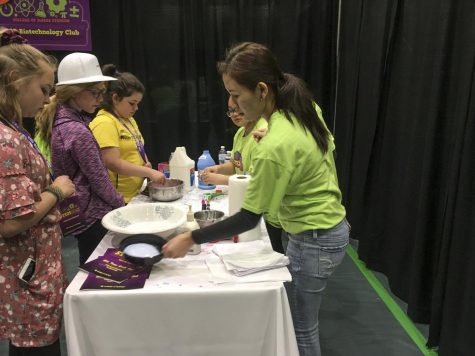
Members of the BioTech Club at COD’s STEM-CON on April 28
VM: What are your long-term goals as an aspiring engineer?
JH: Long-term, I plan on getting a bachelor’s degree in biological engineering from the University of Illinois at Urbana-Champaign and have an engineering career in the field of renewable energy. I want to come up with more efficient methods of producing energy around the world and find ways to reduce the pollution created by our current methods of obtaining fuel.
VM: How would you sum up your time at COD?
JH: I would definitely recommend COD to other women who are looking to enter a STEM field. It helped me, personally, because I knew I was interested in the STEM field, but I was not sure exactly what path to take. COD played a large part in helping me decide what I wanted to do for a career. Also, I was able to interact with several other ambitious and driven women who are interested in similar career paths. Women that are passionate about STEM would be able to take advantage of a wide array of opportunities at COD and join clubs, organizations and take part in leadership opportunities that would help them immensely in the future. They would be able to seek advice from knowledgeable professors who are women in STEM themselves and learn about how to work for their goals.



